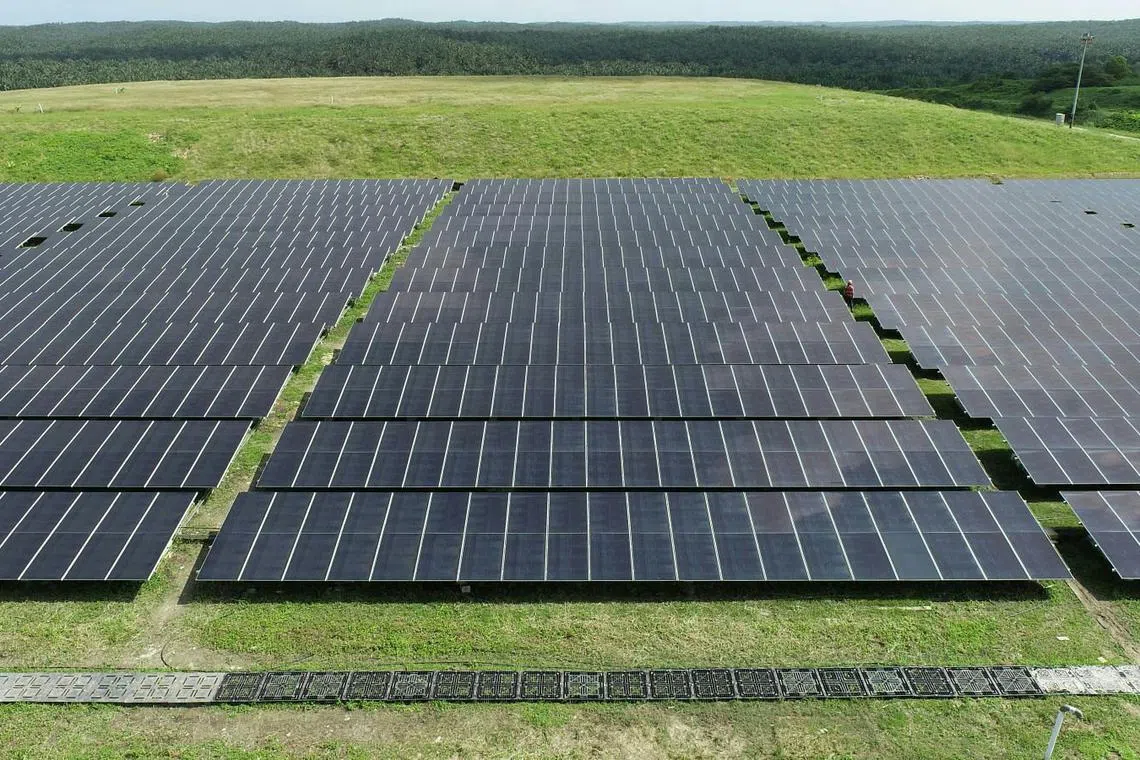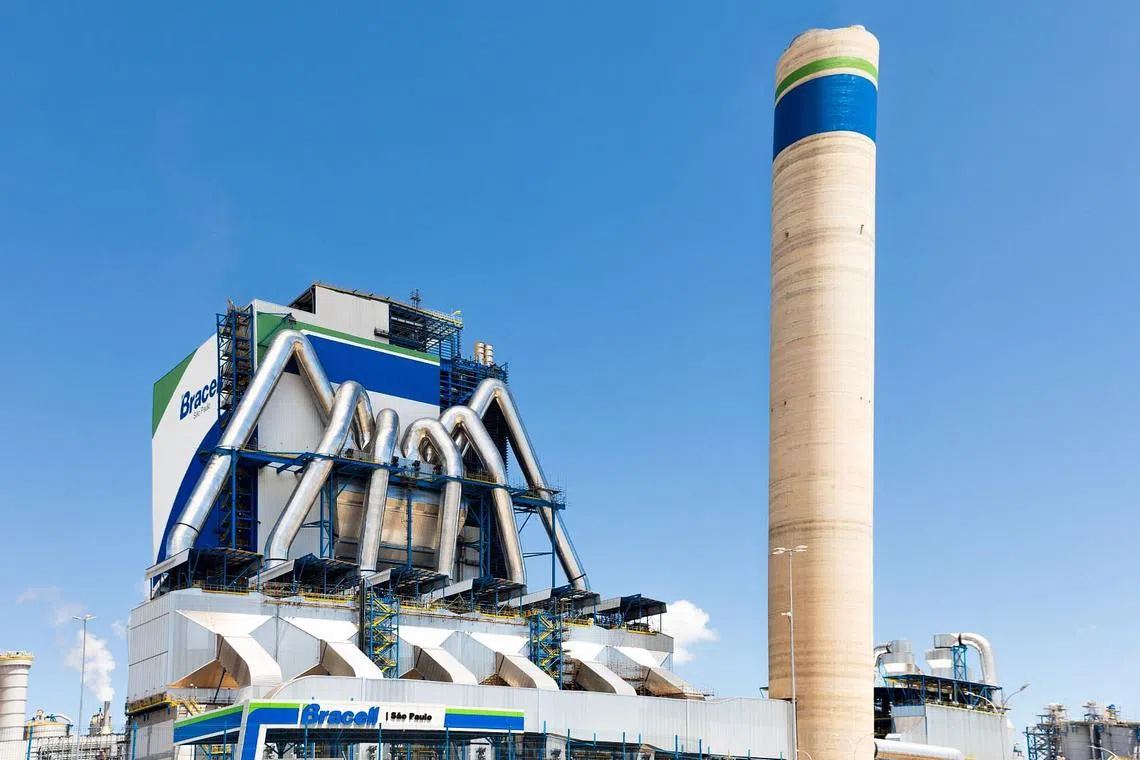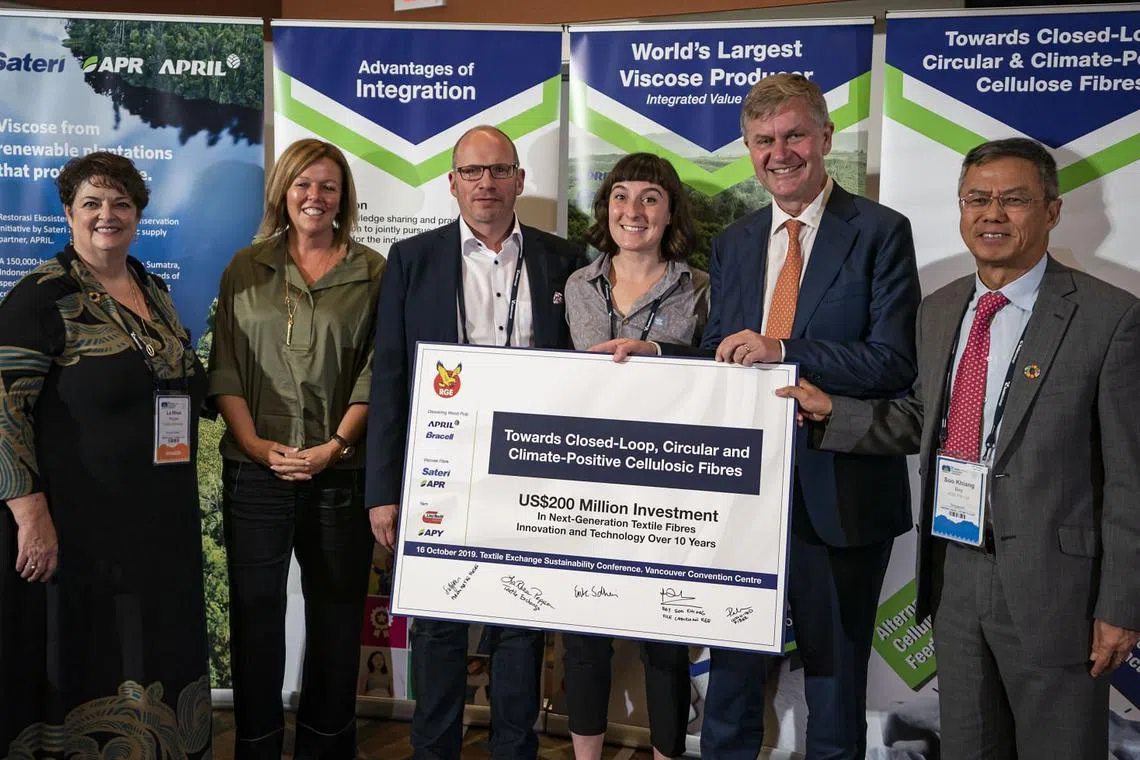Starting right, right from the start
RGE's sustainability efforts are driven by its businesses that are renewable, biodegradable and sustainable
SINGAPORE-BASED conglomerate Royal Golden Eagle (RGE) Group is leveraging its position as a market leader in sustainable raw materials to play its part in creating a low-carbon future.
With over US$25 billion in assets and more than 60,000 employees, RGE produces sustainable natural fibres, edible oils, green packaging and clean natural gas that are used in a wide range of consumer products for daily use; from tissue and wet wipes to cooking oil and clothing.
"We build and manage businesses that produce renewable and sustainable products to serve the needs of both developed and fast-growing economies," says Tey Wei Lin, President, RGE.
He notes that RGE's high performance businesses are designed with a long-term view, strong capital structures and robust governance. Furthermore, the company's integrated supply chain enables it to intensify its business upstream, while diversifying downstream so that its businesses perform at maximum potential.
Despite its focus on growth, RGE believes that positive impacts on climate, nature, communities and business expansion must go hand-in-hand. As the company uses renewable bio-resources at scale, it believes that it is well-positioned to help with the low-carbon transition.
To this end, RGE works to protect and restore native forests and biodiversity, as well as reduce carbon emissions by transitioning to cleaner energy. The group also seeks to improve communities through better healthcare, education, infrastructure and livelihoods.
Navigate Asia in
a new global order
Get the insights delivered to your inbox.
"We believe our futures depend on helping communities thrive, contributing to the economic development of the countries where we operate, protecting the climate, and delivering quality products for customers. Only then will we create a strong future for the company," says Mr Tey.
Sustainability as business model
RGE's business philosophy is underpinned by the 5Cs concept; operating in a way that is good for the Community, good for the Country, good for the Climate, good for the Customer, which will ultimately be good for the Company.
"Sustainability means starting the business right! You can't make a brown industry, green. Sustainability isn't a vertical stream of activity in our business model. It is our business model," says Anderson Tanoto, Managing Director, RGE.
For RGE to be a truly sustainable company, he believes that ESG (environmental, social and governance) considerations have to be embedded in the way it operates. On a practical level, this involves running businesses that are renewable, biodegradable and sustainable. For instance, its key plantation business is part of the photosynthetic process, explains Mr Tanoto.
"Our industry is about trapping carbon dioxide and releasing oxygen. We plant seedlings into the soil. With a bit of sunlight and rainfall, photosynthesis takes place. We trap these carbon molecules to make cellulose, to make pulp, tissue, paper board packaging. The same carbon molecules are then used for dissolving pulp to make viscose rayon, textile, and wet wipes," he says.
A greener, more circular world
In 2020, RGE decided to establish targets on what it wanted to achieve in the next decade. As such, the company's various business groups have committed to very clear 2030 targets for sustainability.
The core of this ambition involves achieving the following broad goals:
- Zero tolerance for deforestation; reduction of emissions by 30-50% by 2030
- Net zero status by 2050; radical transparency and traceability
- Creating a positive impact on biodiversity and conservation
- Investing in technology to improve sustainability and traceability
- Inclusive growth for communities and employees through Education, Enhancement and Empowerment
Says Mr Tanoto: "We are passionate about a cleaner, greener, more circular world. Our futures depend upon it."
RGE's sustainability initiatives
Climate Action
Renewable BioEnergy & Decarbonisation
RGE's strategy is to move away from fossil fuels and into renewable energy sources, primarily solar energy.
Energy Transition

The company has successfully installed a 1-megawatt rooftop solar panel system and connected it to the power grid in its viscose mill in Jiangxi Province, China, as well as a 1-megawatt solar panel system in Kerinci, Indonesia, which will form part of a 25-megawatt solar panel project to be completed by 2025. It also launched two electric buses in September last year for employees commuting to its mill in Kerinci. The company plans to invest in more renewable energy use across its mill operations, as part of its holistic strategy to mitigate climate change.
Bracell: World's largest and greenest pulp mill

In the midst of the pandemic, RGE completed the building of the world's largest and greenest pulp mill in São Paulo, Brazil. Producing renewable fibres from sustainable eucalyptus plantations, the mill is designed to be 100% fossil fuel free, self-sufficient in energy and provides clean bioenergy to the communities.
Supporting sustainable fashion

In 2019, RGE committed US$200 million over the next 10 years into next-generation cellulosic fibre innovation.
In 2021, RGE forged two partnerships in Singapore to advance sustainable fashion. The first is a three-year strategic partnership with the Textile & Fashion Federation to advocate sustainable industry practices within Singapore and the region, through programme implementation, research, and education. The second is a five-year research collaboration with Nanyang Technological University, Singapore on innovation in textile recycling technology.
Conservation & Restoration
One for One
RGE has established a 1-for-1 goal of matching one hectare of conservation and restoration to every hectare of its plantation. To date, the company has achieved over 80% of this target.
It is also committed to investing one dollar for every ton of fibre that is delivered to the mill. This will guarantee about US$ 100 million for conservation and restoration over the next 10 years.
Riau Ecosystem Restoration (RER)

Established in 2013, RER is a public-private partnership set up by APRIL, RGE's pulp and paper company. It consists of more than 150,000 hectares of peatland swamp forest on the Kampar Peninsula, in east Sumatra, Indonesia; an area twice the size of Singapore.
RER integrates sustainable landscape management that involves local communities, government, forestry experts and NGOs to restore degraded peatland forest and preserve the natural habitat of over 800 species of wildlife.
Sustainability-Linked Loans
In 2021, RGE secured two sustainability-linked loans (SLL) totalling more than S$2 billion. The company is among the first non-property player to tap on SLLs in Singapore. The group's aim is to move majority of its financing to SLLs.

Decoding Asia newsletter: your guide to navigating Asia in a new global order. Sign up here to get Decoding Asia newsletter. Delivered to your inbox. Free.
Copyright SPH Media. All rights reserved.
